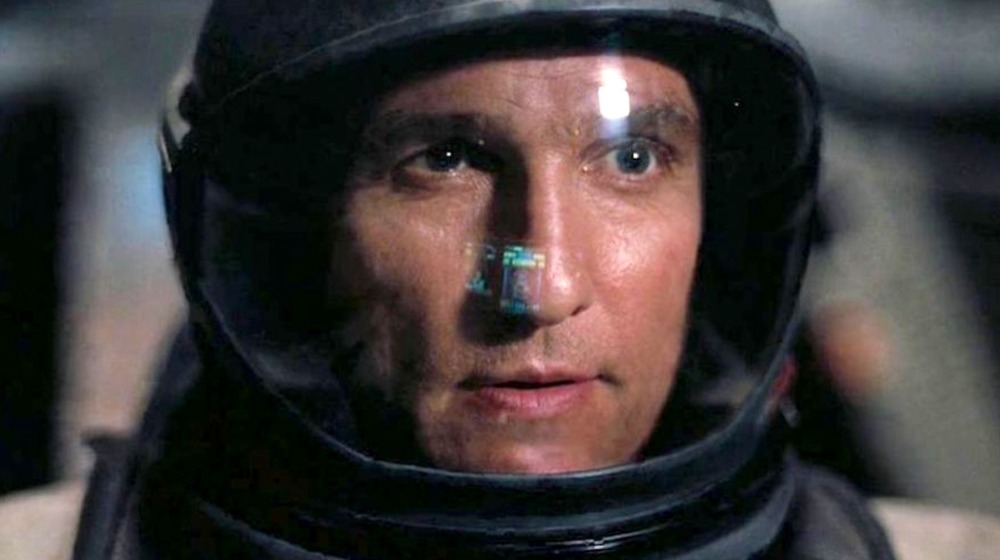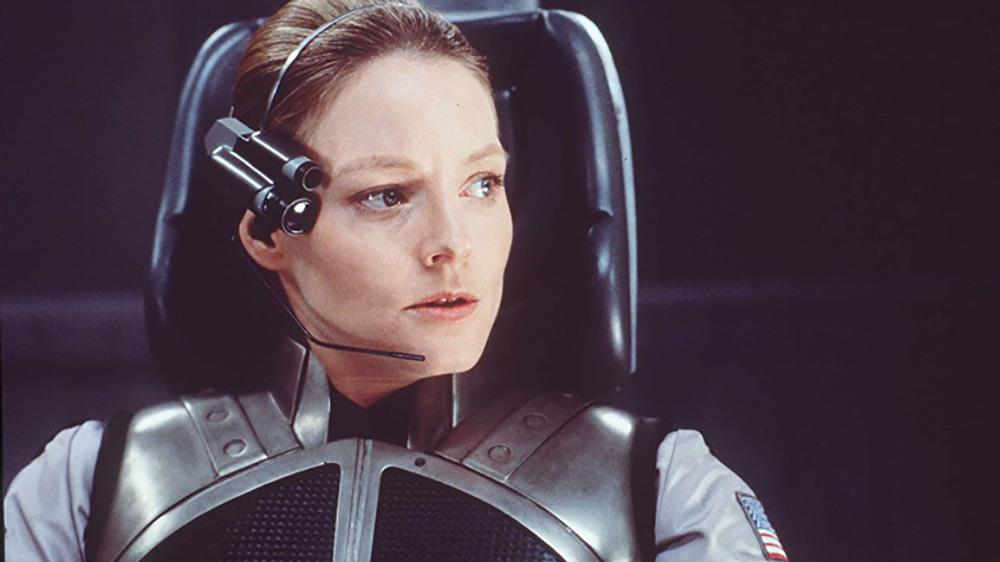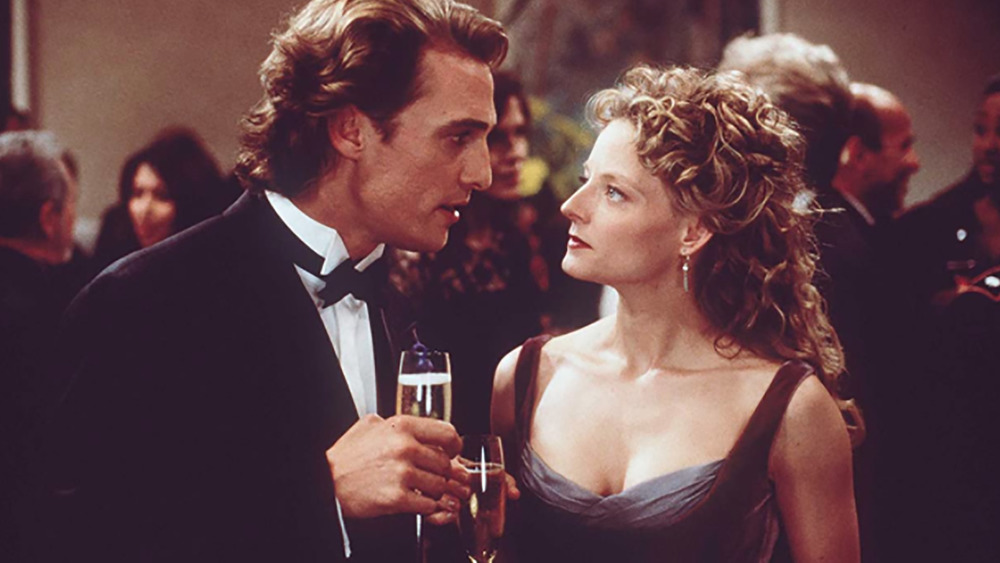The Sci-Fi Space Movie Fans Of Interstellar Need To Watch
Christopher Nolan's hit film Interstellar is beloved by many, either thanks to or despite the science-fiction adventure's complex third act, depending on your viewpoint. There's no denying the 2014 space opera boasts a cast as stellar as its premise is visionary. Starring Matthew McConaughey, Anne Hathaway, Matt Damon, Jessica Chastain, John Lithgow, and Michael Caine, Interstellar follows astronauts who journey through a wormhole in search of a new home for humans after Earth becomes near-uninhabitable. The story was praised for being more emotionally accessible than Nolan's previous films by Variety, and the movie made more than $700 million worldwide, according to Box Office Mojo.
The final hour of Interstellar reveals that intelligent and seemingly benevolent beings created the wormhole to increase humanity's chance at survival, bringing one of the astronauts — Cooper (McConaughey) — to an interdimensional library where he can communicate through time with his daughter, Murph (played as an adult by Chastain). The movie's biggest reveal occurs later, when Cooper realizes the beings that created the wormhole aren't extraterrestrial; they're humans from the future who have learned to manipulate time and gravity to assist people from the past in saving mankind.
If you enjoy Nolan's unique style of storytelling, you'll want to check out his 2020 time-travel caper Tenet. But if Interstellar left you searching for movies in a similar vein, there's another science fiction drama involving intergalactic exploration that you might enjoy even more.
Contact also stars Matthew McConaughey
Director Robert Zemeckis' movie Contact was released in 1997, and is based on the book of the same name by American astronomer and science writer Carl Sagan. As pointed out by Vulture, Interstellar and Contact not only share "subject matter and countless plot details," but also star Matthew McConaughey. Each movie was also produced by Lynda Obst, who collaborated with Sagan on Contact's original screenplay treatment in 1979.
Contact stars Jodie Foster as Dr. Ellie Arroway, who intercepts a signal from deep space while working at SETI (Search for Extraterrestrial Intelligence), proving that extraterrestrial intelligence exists. The scientist then deciphers the communication to reveal plans for a machine she believes will allow humans to travel safely through time and space to reach the source of the transmission. McConaughey portrays Palmer Joss, an anti-technology spiritual advisor to the president and Ellie's love interest who challenges her disbelief in God as she oversees the construction of the mysterious vessel.
Like Interstellar, Contact explores the themes of scientific ethics, spiritual faith, and love, with family at the heart of the story. While Cooper's motivation was the love he felt for his children, here, it's the bond Ellie shared with her late father. As Cooper explains in Interstellar and Ellie discovers in Contact, love is the most transcendent force in the universe, surviving the passage of time and the experience of death.
Contact made it possible for Interstellar to soar
Contact faced numerous challenges making it to the big screen. While Sagan and Obst's story treatment was optioned by Warner Bros. in 1979, development stalled. Sagan then published the story in novel format in 1985, and the bestselling book revived the studio's interest in the project. Production eventually began moving forward with director George Miller (Mad Max) at the helm, but he was eventually replaced by Robert Zemeckis, whose vision finally made it to the screen in 1997. Sagan continued to serve as an advisor on the project until his death in 1996.
Similarly, Interstellar's script spent almost ten years being passed from studio to studio before screenwriter Jonathan Nolan suggested his brother, Christopher, for the project. Before that, Steven Spielberg considered the movie to be a passion project — one he eventually had to let go when his DreamWorks production company separated from Paramount Pictures, which owned the screenplay, according to SlashFilm.
According to Vulture, Contact broke numerous storytelling barriers when it was released in 1997, and its cinematography foreshadowed the more advanced approach to outer space visual effects seen in films such as Interstellar. Its opening scene made CG history by featuring a three-minute reverse-zoom that traces the Earth into the cosmos. The movie was a box office success, raking in more than $170 million worldwide, which would equal nearly $280 million in 2021.
Reddit users have long discussed the similarities between the two movies, with some noting they thought the 2014 hit could have been a sequel to its 1997 predecessor. Some viewers believe the film was a direct inspiration for director Christopher Nolan, with a similar musical score and sound effects resonating as no mere coincidence. Like Nolan's epic movie, Contact also lost many viewers during its final act, which involved an alien beach, some not-entirely-convincing special effects, and a sentiment that many felt was too contrived.
Whether you've already seen Contact or not, it's worth another viewing paired with Interstellar.


